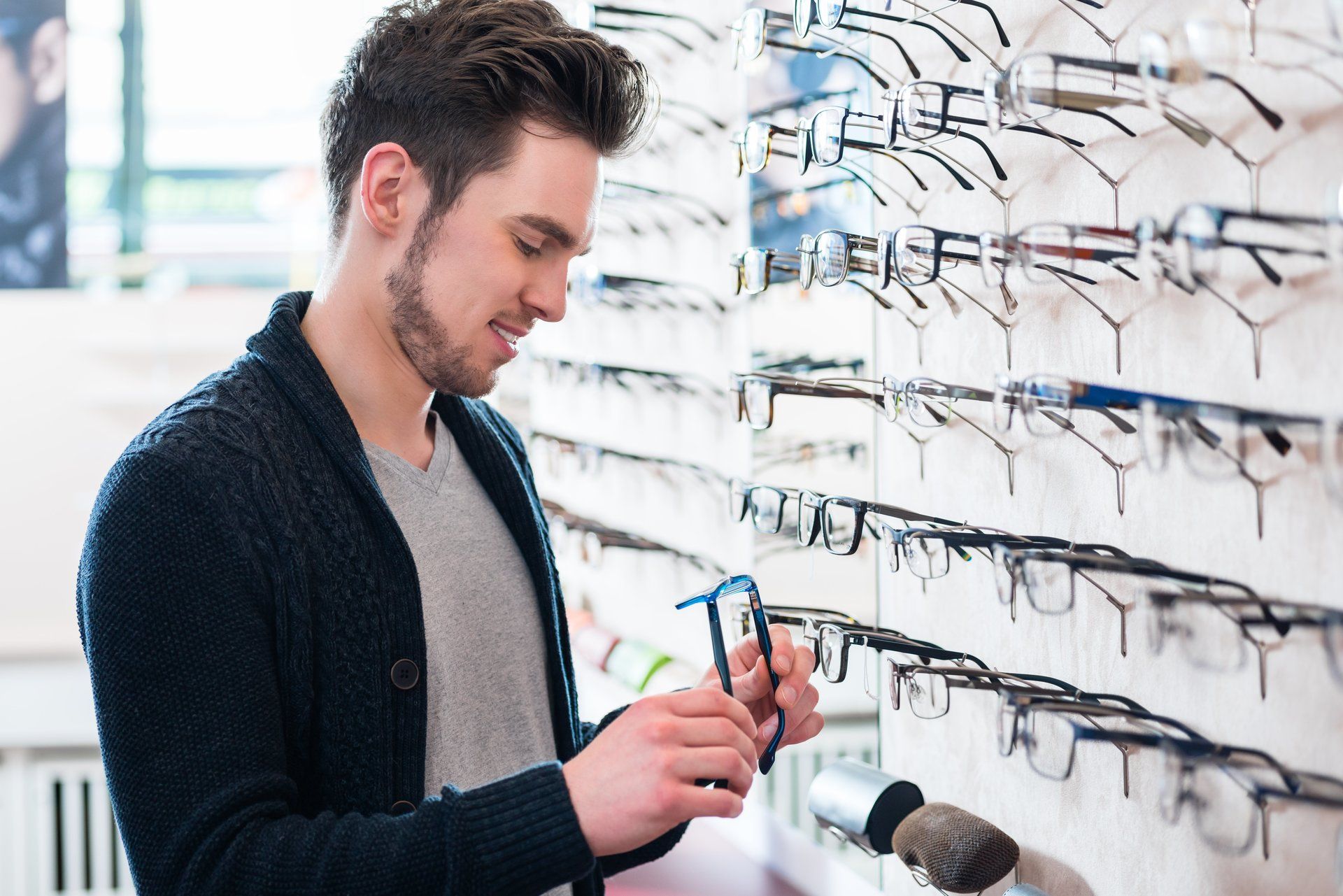Your Eye Test Explained
If you are a new patient with us we ask you to bring a copy of your last prescription
or the current glasses you are wearing.
This allows us to see what prescription you are wearing, therefore informing us if a new pair of glasses or updated prescription is required following your eye test.
Our standard eye-test last 30 minuets and is tailored to you individual needs, however
a typical eye-test will involve the following
General Health Questions
Your Appointment will start with some general health questions. Our optician will discuss with you the reason for your appointment, such as vision worries, headaches or needing new glasses. They will discuss any concerns you may have and will need to know about your general health, any regular medication, relevant family history and any previous eye problems you may have had. They will also ask questions about lifestyle such as driving, computer use, hobbies and how you use your eyes on a daily basis. This information allows us to fully investigate any concerns and tailor any recommendations to your specific eye requirements.
Initial Eye Checks
Eye Coordination Checks
These are important to assess the movement of the eyes, the strength of the eye muscles and to check for causes of tired eyes, visual stress and fatigue. They can also be used to check for some general health conditions such as thyroid problems. They are especially important in children to rule out squints and lazy eyes and to ensure normal binocular development- ensuring the eyes work together to give clear 3D image.
Internal Eye health checks
These checks are important to look for any signs of eye problems such as glaucoma, Macular degeneration, Cataract and general health issues such as blood pressure, cholesterol and diabetes. If any problems are suspected, our optician will arrange further investigations which may involve putting drops in the eyes to open the pupils to allow the eyes to be examined in a more detailed way.
External Eye health checks
This is to check for conditions such as blepharitis and dry eyes which if untreated, can have a strong impact on your visual comfort throughout the day.
Visual Assessment
This is to assess the quality and comfort of your vision. it will allow the optician to see whether you need glasses, a change in your current spectacle prescription or whether your vision is fine without the need for glasses. It is important to ensure any change in prescription is managed well and that your vision is balanced, clear and comfortable.
Digital Retinal Photography & Eye Pressure
Digital Retinal Photography
This gives a detailed image of the back of your eye. when coupled with the information gained from the internal eye health checks it can provide important details about the health of your eyes and your general well being. it allows comparison of your eye health at future visits.Eye Pressure Measurement
Using a piece of equipment called a Tonometer our optician will measure the pressure of the fluid inside your eye based on its resistance to a puff of air. The test is painless and provides valuable information regarding your risk of development of series eye problems such as glaucoma.
Supplementary Tests
Using the information gained so far during your examination our optician may decide to preform further tests to fully assess your eye health and vision. These include;
Colour Vision Assessment
it is more common for boys rather than girls to have a problem with colour vision so it is important to establish early in life whether any defect in colour vision is present as it may have an effect on future career choice. Later in life conditions such as Macular Degeneration and diabetes can affect your colour vision so this test may be used to monitor eye conditions.
Visual Field Test
This test is done using a machine and it determines whether you have any blind spots in your vision. it involves responding to lights flashing around a central target to check how sensitive your retina is.
Stereo Test
This is an assessment of your 3D vision, it helps the optician to understand how well your eyes work together and is important test in children to ensure visual development is normal.
After Your Test
At the end of the examination your optician will give you clear advice about any changes in your prescription and make recommendations regarding updating glasses or having glasses for the first time. They will explain any health findings and reassure you that everything is normal or arrange further tests if necessary. If hospital treatment is required, they will make all the arrangements for a referral and will give you a copy of any information relevant to your referral or eye condition. They will also make any recommendations about the best way to correct your vision taking into account your lifestyle and vision needs. If you have any questions or concerns they will be happy to discuss these with you.
All this information will be passed onto our optical dispensers who will help you choose the best frame shape and style for your prescription and advise you on the best lens options to ensure you get the perfect pair of glasses tailored to your needs.

Regular eye tests are important as they can help detect early signs of
glaucoma,
which is the leading cause of blindness, and other
serious health problems.
How often do I need an Eye-Test?
Find Out More
Do I Qualify for an NHS funded test?
Find Out More
Contact Lens Appointment
If you are interested in contact lenses or already have contact lenses and you are due for your annual check up, your appointment will be a bit different to an eye test, but our optician and optical assistants will help guide you through the process.
Call 0161 767 9740 to book your eye test or contact lens appointment today
